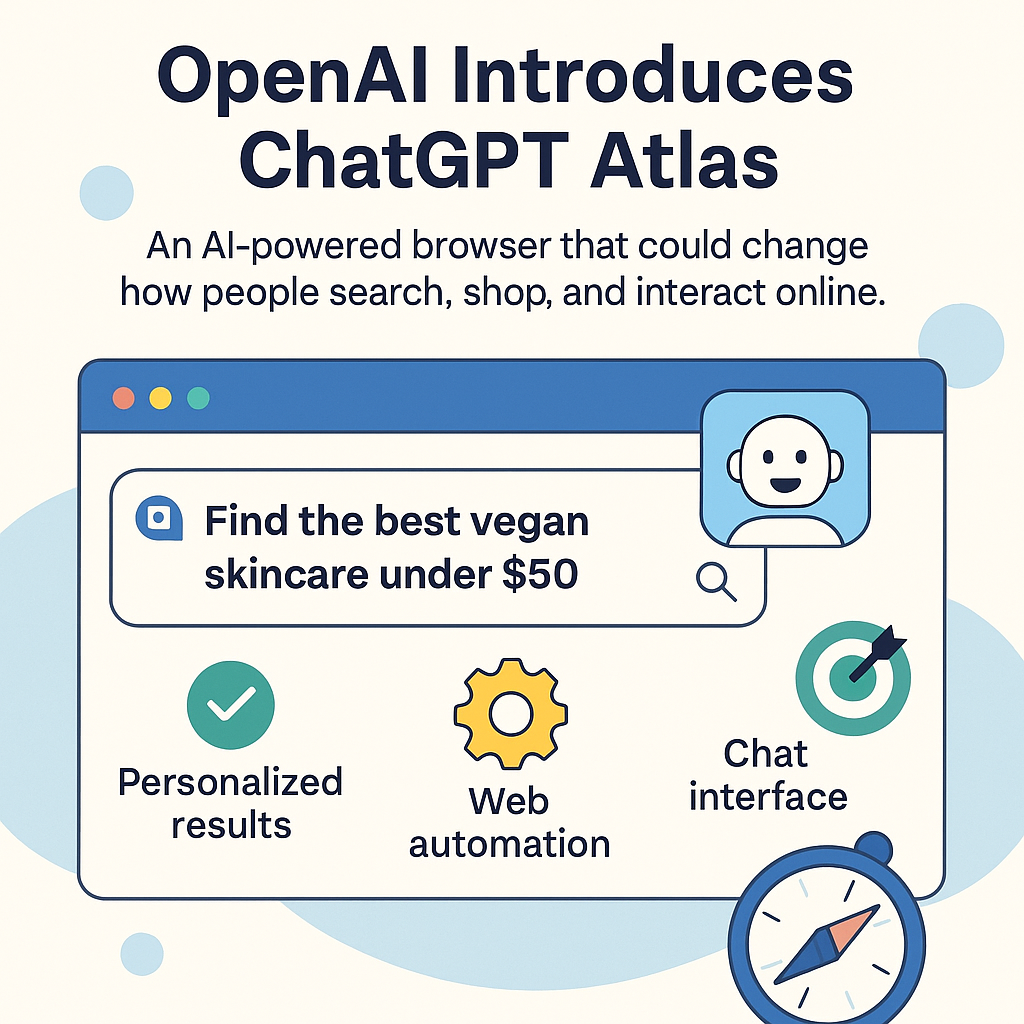What ChatGPT Atlas Means for Performance Marketers
OpenAI just dropped something big: ChatGPT Atlas, an AI-powered browser that could change how people search, shop, and interact online.
Atlas combines chat, browsing, and automation in one experience — meaning users can ask questions, perform tasks, and get personalized results all within a single interface. And that has huge implications for performance marketers.
Here’s what you need to know…
How Atlas Changes the Game
According to TechCrunch, ChatGPT Atlas includes:
A side-panel chatbot that automatically understands the page you’re on — no more copying and pasting context.
Personalized history-based answers, meaning it learns from what you browse.
An agent mode that can automate certain web tasks (like filling out forms or comparing products).
A push to challenge the traditional Google-style search experience.
That last point is key — if the way people “search” evolves, the way we market must evolve too.
What It Means for Performance Marketers
1. Search Behavior Is Changing
Instead of typing a keyword into Google, users might start asking the browser itself things like “Find me the best vegan skincare under $50” or “Which CRM integrates with Slack?”
This means fewer traditional clicks — and more AI-filtered recommendations.
Marketers will need to optimize content and offers to be agent-friendly — clear, factual, structured, and easy for AI to understand and surface.
2. Attribution Gets Tricky
If the browser’s agent does the clicking and form-filling for users, we may lose visibility into the conversion path.
It’s a reminder that first-party data and creative attribution models will matter more than ever.
3. Ad Creative Needs to Adapt
Your next high-performing ad might not be a banner or headline — it could be the snippet the AI pulls into a chat.
Think conversational language, direct answers, and trust-building proof points.
4. New Ad Formats Are Coming
As Atlas gains traction, expect AI-native ad placements — sponsored suggestions, agent-based recommendations, or “assistant-approved” brands.
Early adopters could gain major visibility by testing these placements as they roll out.
5. Personalization Is Everything
Because Atlas uses browsing history and context, every experience is customized.
That means marketers who understand how to sync data, personalization, and privacy will have a massive edge.
What You Can Do Now
Audit your content for structured data (schema, product info, FAQs).
Map out conversational intent — what would your ideal customer ask the browser?
Keep an eye on new ad opportunities in AI browsers and side-panels.
Rethink your analytics — the conversion path may soon look more like a conversation flow than a funnel.
Stay privacy-minded — transparency will matter even more in an AI-driven world.
The Bottom Line
ChatGPT Atlas could signal a new era of search and conversion — one where AI agents replace the middle steps between intent and action.
For performance marketers, that’s both a challenge and an incredible opportunity. Those who learn to speak the new language of AI-driven discovery will stay visible while others fade into the background.

